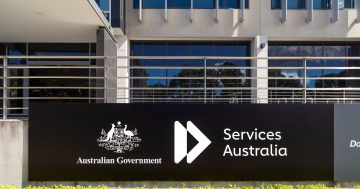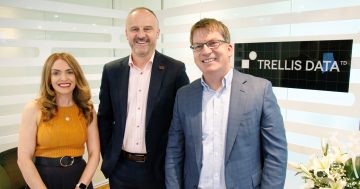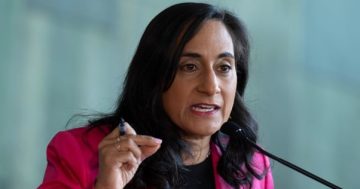Lisa Earle McLeod* says that in crisis situations such as the current one, it is not good enough to think of short-term solutions that might be detrimental to future generations.
 “In every deliberation, we must consider the impact on the seventh generation… even if it requires having skin as thick as the bark of a pine.”
“In every deliberation, we must consider the impact on the seventh generation… even if it requires having skin as thick as the bark of a pine.”
This Seventh Generation principle comes from the Native American culture, where it was used to make decisions large and small.
Putting yourself in the position of future generations provides a frame that helps you do the right thing.
As I reflect upon where we are and where we might do good, I find myself thinking deeply about leadership, the type of leadership that got us here, and the type of leadership we need going forward.
We’re in a defining moment. Whether you are in the Public Service or the private sector, the decisions you make today will define you for years to come.
Here are three frames I’m using with my leadership clients to make decisions during a time of uncertainty, plus a fourth question for all of us to ponder.
Who does your organisation serve?
In a crisis, leadership decisions have outsize impact and importance.
We’ve seen what happens when leaders focus on short-term quarterly capitalism.
It erodes morale and creates a transactional relationship with employees and clients.
During a crisis, focusing on short-term gains will erode reputation and trust overnight.
If you were an employee, what would you want your leader to do?
Leaders are being called upon to make tough decisions.
Many have watched their business evaporate overnight.
Financial decisions and health decisions have suddenly become comingled.
Leaders will do well to consider: If I were in the shoes of the lowest-level employee in my organisation, what would I want my leader to do?
What safety precautions would I want them to take?
What financial measures would best serve the team?
To make it even more personal, here’s a question I’ve used in challenging situations.
If one of the people in question were my child, how would I want their leader to handle this?
How do we want to be remembered by our clients?
You don’t have to give away the store.
You do want to think long and hard about how your clients are going to look at your actions.
One of our clients in retail made the decision to close, another in healthcare made the decisions to stay open, others, like some of our banking clients, are doing a hybrid.
The lens they are using is: What’s best for our customers?
Notice, there’s a nuance to that. It’s not, what do our customers want? They may want their restaurant to stay open.
It’s about asking, what’s best for people and how do we want them to remember our actions?
How can you express empathy?
Any teacher or parent will tell you, empathy is a hard skill to teach.
The ability to lean into and understand the feelings of another is crucial for leaders, and it’s critical for successful personal relationships.
Lately I’m thinking about the impact empathy (or lack of it) has on our collective spirit.
I’ve worked with organisations where empathy is in short supply.
At first, it coarsens the culture, then eventually it poisons it, as people turn against each other.
When leaders lack empathy, it’s contagious.
People double down on their own agendas as a way to self-protect, when everyone is focused on short-term self-interest, organisational failure follows.
As I work with our clients to help them make good decisions, I continue to be impressed by their deep-seeded desire to do the right thing.
As we’ve seen many times before, when things are at their worst, people are often at their best.
Lastly, here’s a question I was thinking about before this crisis, that I find myself asking even more urgently today.
Who does our Government serve?
Does our Government exist to reward our top producers?
Or is the purpose of Government to serve the least among us?
My spiritual beliefs tell me it’s the latter. A question I often ask myself is: How would I want my children treated if they had been born poor?
It’s only by accident of birth that I was born to a university-educated couple with good jobs and a hard work ethic.
I didn’t create that for myself, any more than my children chose their parents.
What kind of world do we want to provide for less fortunate children?
As I think about our future, I find myself thinking deeply about wisdom of the Seventh Generation principle.
Oren Lyons, Chief of the Onondaga Nation (pictured) writes this:
“We are looking ahead, as is one of the first mandates given us as Chiefs, to make sure and to make every decision that we make relate to the welfare and wellbeing of the seventh generation to come.”
When they look back in time, what will our seventh generation think about us?
*Lisa Earle McLeod is best known for creating the popular business concept Noble Purpose. She is the author of Selling with Noble Purpose and Leading with Noble Purpose. She can be contacted at mcleodandmore.com.
This article first appeared on Lisa’s blogsite.











